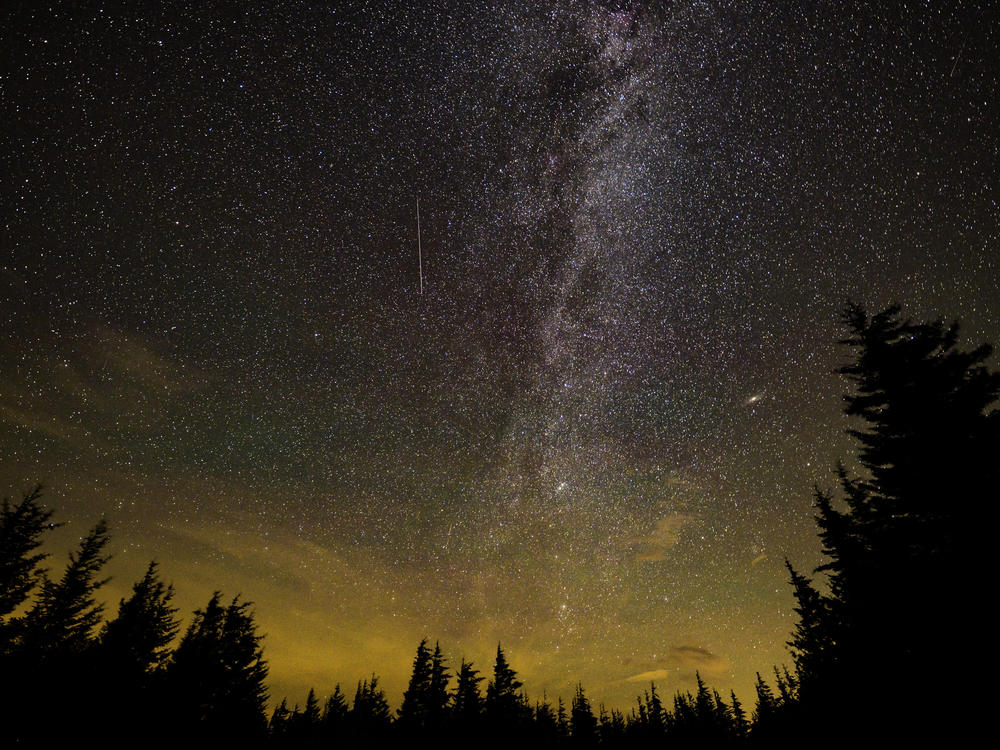Section Branding
Header Content
There's a chance of a meteor shower Monday night
Primary Content
Astronomers say a meteor shower is possible Monday night into early Tuesday.
On Monday night, Earth will travel through the debris trails of a broken comet named 73P/Schwassmann-Wachmann or SW3, for short, according to a NASA blog.
"Will a new #meteorshower, the tau Herculids, put on a spectacular show the night of May 30-31? Maybe, maybe not," NASA's planetary science division tweeted.
Those in North America have the best shot at seeing the shower at about 1 a.m. on the East Coast or 10 p.m. on the West Coast, according to the NASA blog. The meteor shower can also be viewed via the Virtual Telescope Project.
"We can't be certain what we'll see," Lee Mohon wrote on NASA's Watch The Skies blog. "We can only hope it's spectacular."
Copyright 2022 NPR. To see more, visit https://www.npr.org.

